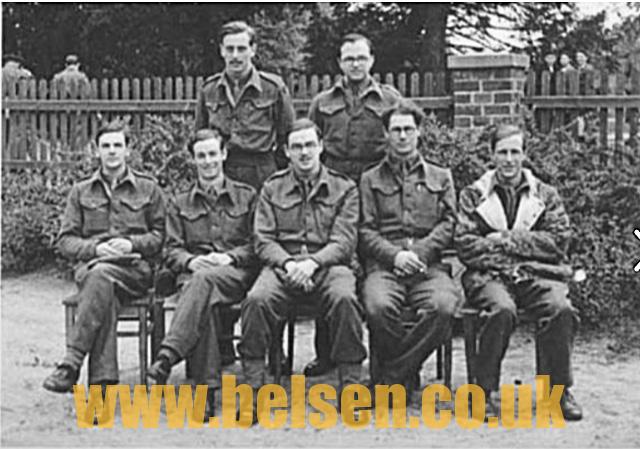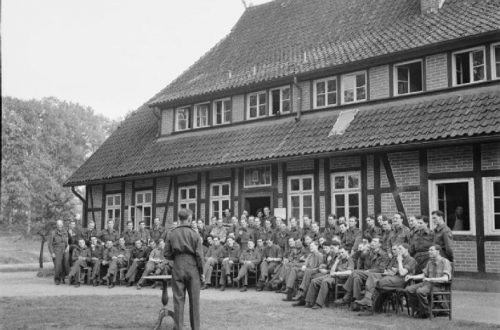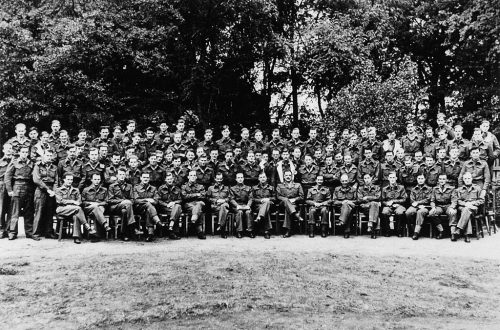Laurence Wand – Medical Student (St. Barts)
“You see, there was a war still being fought…There was a CCS, there was 32 CCS, there was an anti-aircraft regiment and there was a control unit, there were a few British Army units which had been allowed to be in reserve at Belsen, but their primary function was not to look after Belsen, their primary function was to back up the 21st Army Group in trying to get that war over and there was very little that could be spared.”

Rear: Ian Proctor, Laurie Wand
“Most of what we had was captured German equipment…There was very, very little in the way of medication or equipment.But then, even if there had been, the problem was one couldn’t have used it because the problem was too overwhelming.One medical student andtwo Hungarian soldiers are not really a very effective medical team for four hundred people when the definition of a ‘well person’ is a person who can stand.If a person could stand he was ‘well’, if he couldn’t stand he was ‘ill’.And this was the arbitrary classification we had to use, whether the individual could literally stand unaided.”
“The policy was, right from the beginning, was to get people out of that awful place into proper surroundings and you couldn’t take them out until they’d been cleaned and the army had set up a ‘human laundry’ –or was in the process of setting up a ‘human laundry’ –which consisted of trestle tables, water supply, trestle tables, a clothing dump, a stretcher dump, old clothing to be discarded, fresh clothing to be provided after the inmates would be brought out of the huts, hosed down, washed down, deloused, and then put into fresh clothes and then evacuated from the camp…The primary task of course was to save life and to get people fed, to get them out of the camp into proper conditions where they could be nursed and looked after and saved from dying.”
(IWM SR 9082)
Also known as Laurie. After the war was colonel in the Territorial Army. Retired from general practice in 1990
(1924-23 November 2012)
8,199 total views


